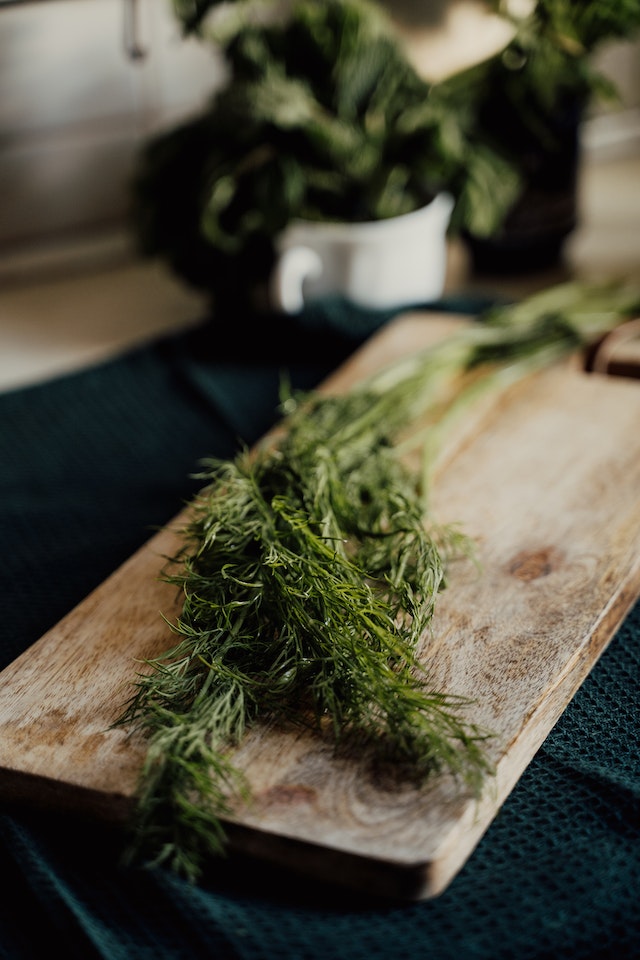Botanical Description:
Scientific Name: Anethum graveolens
Description: Dill is an annual herb belonging to the Apiaceae family. It is characterized by its feathery, delicate leaves, which are finely divided. The plant produces small yellow flowers arranged in umbrella-like clusters, and it bears distinctive, oval-shaped seeds. Dill typically grows to a height of 2–3 feet and has a pleasant aroma.
Disclaimer:
This Materia Medica is provided for informational purposes only and should not replace professional medical advice. Please consult with a qualified healthcare practitioner or herbalist before using any herbal remedies.
Therapeutic Actions:
- Carminative: Dill is known for its carminative properties, helping to alleviate gas and bloating.
- Galactagogue: Traditionally, dill has been used to support lactation in nursing mothers.
- Antispasmodic: The herb exhibits antispasmodic actions, making it beneficial for relieving muscle spasms and cramps.
Constituents:
- Monoterpenes: Dill contains monoterpenes, which contribute to its aromatic properties and potential therapeutic effects.
- Flavonoids: Flavonoids present in dill may have antioxidant properties.
- Volatile Oils: The essential oil of dill, rich in compounds like carvone and limonene, contributes to its medicinal properties.
Traditional Uses:
- Digestive Aid: Dill has been traditionally used to ease digestion, reduce flatulence, and alleviate indigestion.
- Lactation Support: Nursing mothers have used dill to promote lactation and address related digestive issues in infants.
- Calming Spasms: Dill’s antispasmodic properties make it useful for relieving spasms and cramps, particularly in the digestive tract.
Dosage and Preparation:
- Dill Tea: Prepare a dill tea by infusing crushed seeds or fresh leaves in hot water. Drink as needed.
- Infused Oil: Dill-infused oil can be used topically for massage, particularly for alleviating digestive discomfort.
- Culinary Use: Incorporate fresh or dried dill into culinary dishes for both flavor and potential therapeutic benefits.
Cautions and Considerations:
- Allergic Reactions: Individuals with known allergies to plants in the Apiaceae family (carrot, celery, etc.) should exercise caution.
- Pregnancy: While dill is generally considered safe in culinary amounts, pregnant individuals should consult a healthcare professional.
Conclusion:
Dill, with its delicate feathery leaves and aromatic seeds, is more than a culinary herb; it holds a place in traditional herbal medicine. Known for its carminative properties, dill has been employed to ease digestive discomfort, particularly gas and bloating. Its historical use as a galactagogue makes it a supportive herb for nursing mothers, aiding in lactation. Additionally, dill’s antispasmodic actions make it valuable for relieving muscle spasms and cramps, especially in the digestive tract. The plant’s constituents, including monoterpenes and flavonoids, contribute to its therapeutic effects. Dill can be prepared as a soothing tea or incorporated into culinary dishes, offering a palatable and versatile way to experience its benefits. While generally safe, individuals with known allergies to related plants or those who are pregnant should exercise caution. As with any herbal remedy, consulting with a qualified healthcare practitioner or herbalist is advisable to ensure proper use and to address individual health considerations. Dill stands as a testament to the multifaceted nature of herbs, offering both flavor and potential wellness support.





